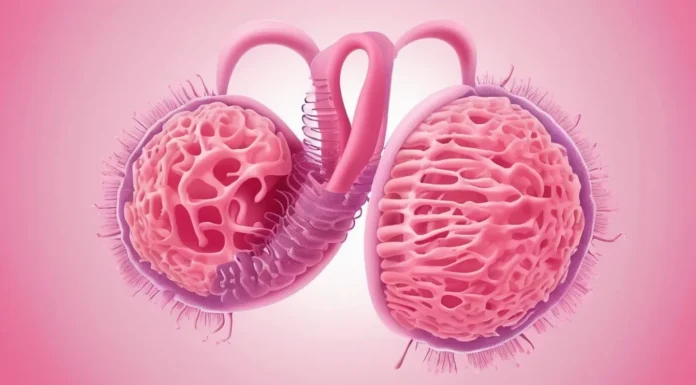Decipher Test for Prostate Cancer: Decipher Test Prostate Cancer
Understanding the Decipher Test Prostate Cancer: A Comprehensive Guide
Prostate cancer is one of the most common cancers in men worldwide. Advances in drug have changed how we use tools like the Decifer test for prostate cancer for opinion and treatment. This genomic testing plays an important part in helping cases and healthcare professionals make...
How I Knew I Had Inflammatory Breast Cancer
How I Knew I Had Inflammatory Breast Cancer
Inflammatory breast cancer (IBC) is a rare, aggressive form of breast cancer that presents differently from more common breast cancers. Unlike traditional breast cancers, which often develop as a lump, IBC shows signs like rapid swelling, redness, and skin thickening, often leading to misdiagnosis as an infection....
Breast Cancer Vaccine: A Promising Future in Cancer Prevention
Breast Cancer Vaccine
Breast cancer vaccination is an exciting and innovative treatment to prevent or treat breast cancer by stimulating the immune system to recognize and destroy cancer cells. This vaccine represents a major advance in the fight against breast cancer, giving hope to high-risk individuals and those battling the disease Although traditional treatments such...
How to Treat Breast Cancer with Hyperthermia in Dogs
How to Treat Breast Cancer with Hyperthermia in Dogs
Hyperthermia therapy for canine breast cancer uses controlled heat to target and destroy cancer cells in the mammary glands. The non-invasive treatment heats tumor tissue up to 41-45°C (105.8-113°F), making cancer cells more vulnerable to damage. and minimizes damage to surrounding healthy tissue. It should be...
Does Arizona Have Breast Cancer? A Complete Guide
Does Arizona Have Breast Cancer
Yes, Arizona has breast cancer cases, like many other states. Breast cancer is a significant public health concern in Arizona, with thousands of women diagnosed each year. The state offers various resources for prevention, screening, and treatment, including awareness programs and access to healthcare services. Early detection through regular screenings...
Do Parasites Cause Breast Cancer? Step By Step
Do Parasites Cause Breast Cancer?
There is no direct scientific evidence that parasites cause breast cancer. Breast cancer is primarily linked to genetic, hormonal, and environmental factors, but some parasites, such as Schistosoma and Helicobacter pylori, have been associated with an increased risk of certain cancers due to chronic inflammation. However, these links do not...
Can You Get Disability for Breast Cancer?
Can You Get Disability for Breast Cancer?
If you have been diagnosed with breast cancer, you might be asking yourself: "Can you get disability for breast cancer?" This is a common concern for many facing the challenges of treatment and its impact on daily life. This article will cover how to apply for disability benefits...
What Causes Throat Cancer: Throat cancer – Symptoms and causes
What Causes Throat Cancer: Throat cancer - Symptoms and causes
Causes of throat cancer at risk
It is well known that drinking alcohol and smoking tobacco are two of the main risk factors for throat cancer. This covers all smoked and smokeless tobacco products, such as cigars, pipes, cigarettes, chewing tobacco, snuff, and betel quid, and...
Head and Neck Cancer Treatment: Navigating the Path to Recovery
Head and Neck Cancer Treatment
Head and neck cancer treatment can include surgery, radiation therapy, chemotherapy, targeted therapy, immunotherapy, or a combination of treatments.
Understanding the Different Types of Head and Neck Cancer
Head and neck cancer is a collective term for a range of malignant tumors that can develop in the mouth, throat, nose, sinuses, and...
Penis Cancer Symptoms: Penile cancer lump symptoms
Penis Cancer Symptoms: Penile cancer lump symptoms
When malignant cells in your penis proliferate out of control, penile cancer results. Although it is uncommon in the United States, you should visit your doctor if you observe any changes to your penis, such as a lump or discoloration. Early intervention can stop the cancer from spreading....














